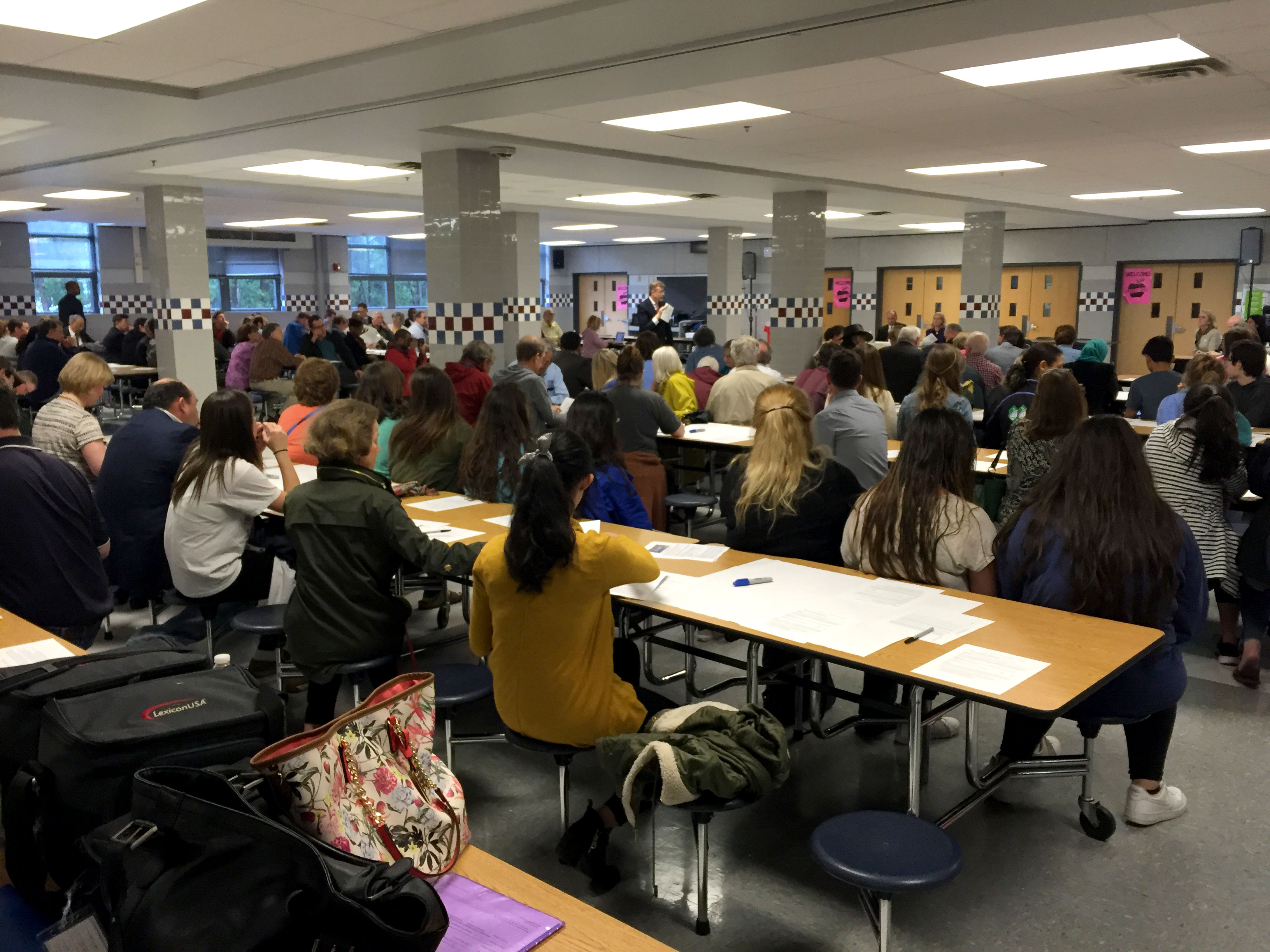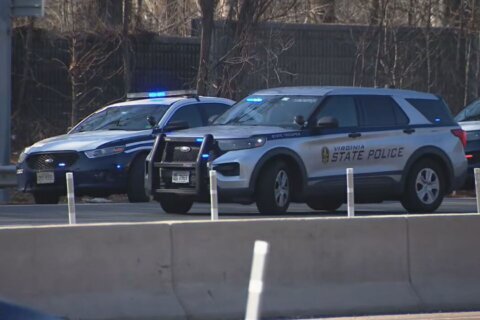WASHINGTON — With only weeks left before the Fairfax County School Board makes a decision on the future of the name of J.E.B. Stuart High School, stakeholders used Thursday’s board meeting as an opportunity to express their opinions.
“Two weeks from now, you are going to take a vote on whether or not to spend over a million dollars to rename J.E.B. Stuart High School and then go down that road with Lee, Shreve, Mosby, and perhaps others,” said Hugh Stuart, great-great nephew of J.E.B. Stuart, Thursday night.
“My question to you is, would you contribute your salaries to pay for it?”
Stakeholders addressed the board in an orderly fashion to speak for or against a move to change the high school’s name.
“J.E.B. Stuart is a figure known basically only for fighting in support of the Confederacy and slavery,” Debbie Danker told the board. “I just don’t see how continuing to celebrate J.E.B. Stuart in this way can be consistent with our county’s One Fairfax resolution.”
The One Fairfax resolution, which was passed by the Fairfax County Council last July, resolved that the county work to create racial and social equity.
“I don’t know for sure why almost 60 years ago the school board decided to bestow that special honor on J.E.B. Stuart and name the school after him,” continued Danker. “But that was then, before Fairfax County Public Schools were even desegregated, and this is now, 2017. And you are going to decide on the name the kids in my neighborhood will be asked to celebrate and honor.”
Charisse Glassman asked the board, “Can you really look into a student’s eyes — a rising ninth-grader who’s getting ready to go to J.E.B. Stuart — and tell her that J.E.B. Stuart inspires her? Does this moment help her see her potential? Does it help you to see your potential?”
What’s Stuart’s legacy?
Stuart thinks that the name does inspire students. He said that his great-great uncle was not all that interested in school when he was younger, often longing to be out riding his horse. But that all changed when he went into the military academy.
“He learned determination, perseverance, and not to quit,” Stuart said. “Those are values that I think the students at this school in particular could do well with.”
A former student even spoke about the inspiration they got from the J.E.B. Stuart name on his high school.
“J.E.B. said in a speech before the war said ‘Ours is a glorious country. I love it. But like Mr. Calhoun, while I love the Union, I love Virginia more and if one attachment ever becomes incompatible with the other … Virginia shall command my services,'” recited Christian Barbosa.
“I struggled to contextualize this in a modern sense and was only able to do so upon reflection of my own dual nationality,” the former student continued. “I think perhaps [Fairfax County School Board member] Mr. Ilryong Moon may also be in a unique position as a Korean-American to understand this conflict within J.E.B. and all Virginians at the time. I hold both American and Brazilian citizenship. I love Brazil; I love Portuguese; I love my culture, its food, its music, its land, my people. I love my country. However, I was born here; I was raised here; my family is here, my neighbors, my friends — much of the goodness in my life has come from the United States. It is my home. I love my country.”
Where did he get all of this information? From the school library.
“I learned this and a lot more in this great book about J.E.B. Stuart that had not been checked out from the Stuart High School library since the 1970s,” Barbosa explained. “I think the only thing keeping the students from being proud of J.E.B. Stuart is [lack of] education about who the man was.”
The name has been with the school since it was built in the late 1950s. Some who spoke before the school board questioned the motives of those pushing for a change.
“How can you vote to remove the name of J.E.B. Stuart High School that has stood for nearly 60 years and until now has not been considered shameful?” Vince Nettuno told the board. “How can this board go back to all the more than 16,000 white, black, Hispanic or Asian or any of the successful and spirited J.E.B. Stuart alumni and tell them ‘You should have been ashamed that you found inspiration at your alma mater. Shame on you for wanting to keep the name of J.E.B. Stuart High School in place.’ It is wrong for this school and the NAACP to shame the alumni by asking ‘Why were you not ashamed of your school as we now feel that you should have been?'”
What are the costs?
Andre Billeaudeaux brought up a financial argument, though he said he’s OK with a name change.
He described a school in New York that changed its name three years ago, even though, he claimed, 85 percent of the students and community supported the old name. “Back then, they could rally to get close to a million dollars in booster funds for their sports program and other activities. In the last three years since they changed their name, there’s still a wide split in the community. … They’re only at $190,000 in fundraising when they should have been a million a year.”
But Robert Rigby argued that by not changing the name, it would hurt the school system even more.
“As a teacher and the president of an employees group I have this thought: Can you attract employees in what is becoming an increasingly competitive nationwide market for teachers and administrators to work at a school to work for an arrogant man whose claim to fame is that he fought to retain slavery?”
Mike Nie questioned the actual benefit a name change would have on the community, speaking against such a move.
“I’m Chinese. In my culture, China has 5,000 years of history. We’ve had numerous emperors, kings, slave masters. During the 1960s under communist China, the notorious counter revolution, the country tried to eradicate the history, damaged numerous historic buildings, renamed cities, schools and streets. What did it get? Nothing.”
“Look at communist Russia,” continued Nie. “It changed from St. Petersburg to [Leningrad] and back to the same name. What’s the point?”
But those on the other side of the debate say there is a point in this case.
“George W. Bush said at the dedication ceremony of the African-American museum, ‘[A great nation does not] hide its history. It faces its flaws and corrects them,'” explained Charisse Glassman. “Honoring J.E.B. Stuart actually ignores slavery and what it actually stood for. When those men burned crosses, they were letting everyone know who was in charge.”
Glassman agrees that the region can’t just scrub its history away. But she supports removing the J.E.B. Stuart name.
“History can’t be changed, but we cannot put the Confederacy on a pedestal.”
And for her, it will require more than just a new sign and athletic jerseys. “If we change the name and our attitudes don’t change, this will all be in vain.”







